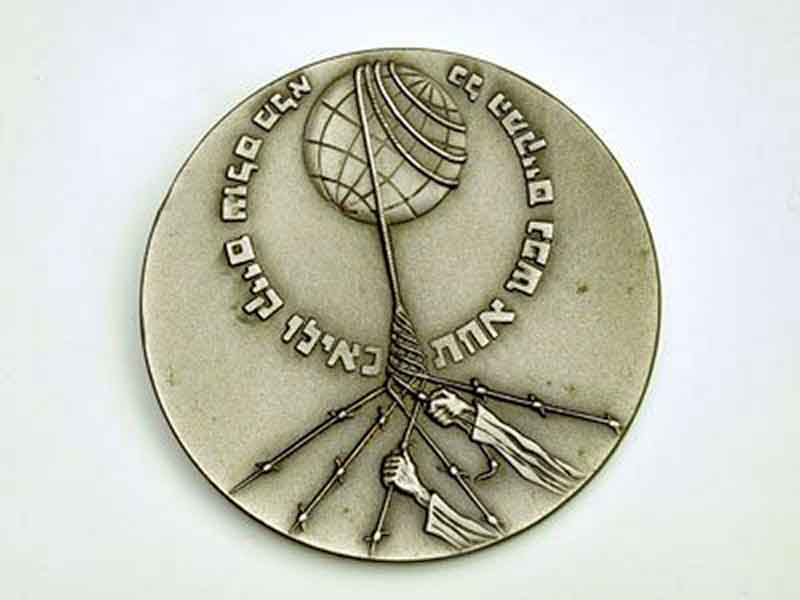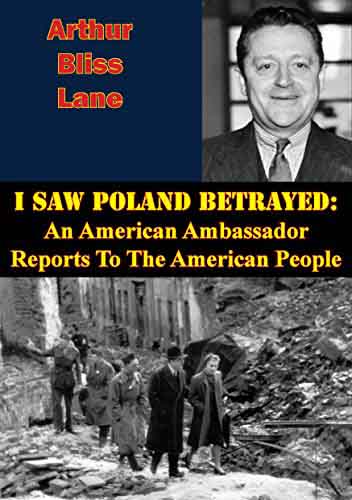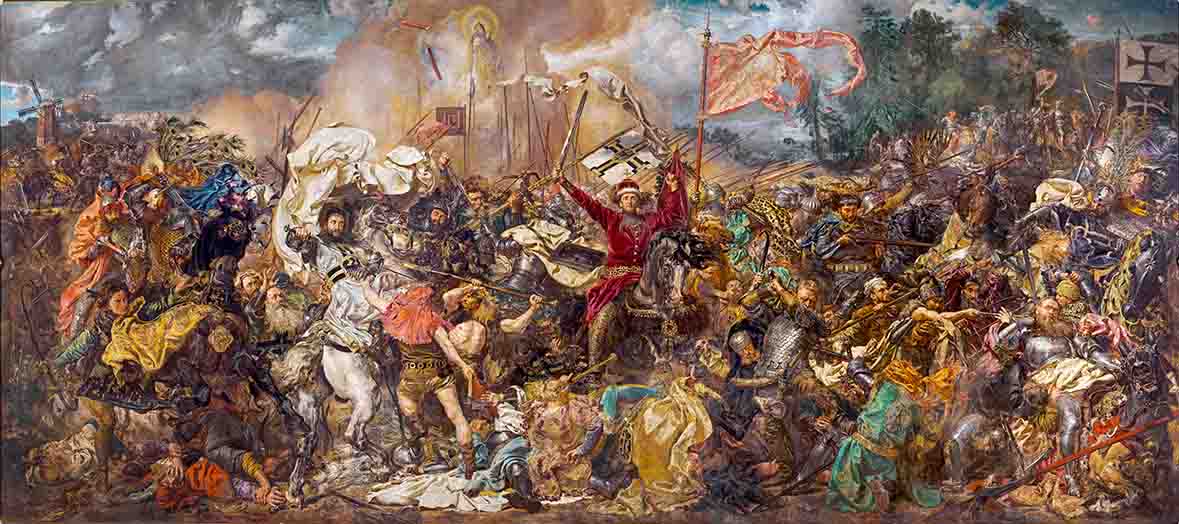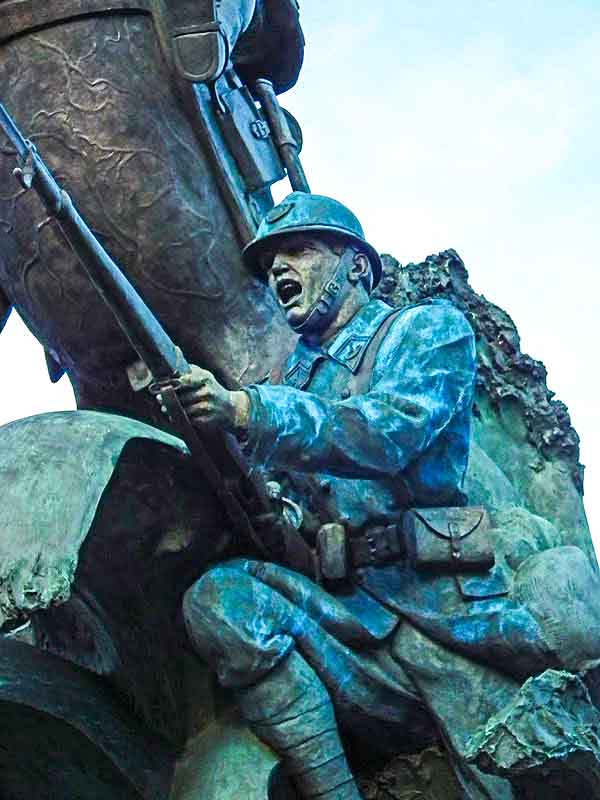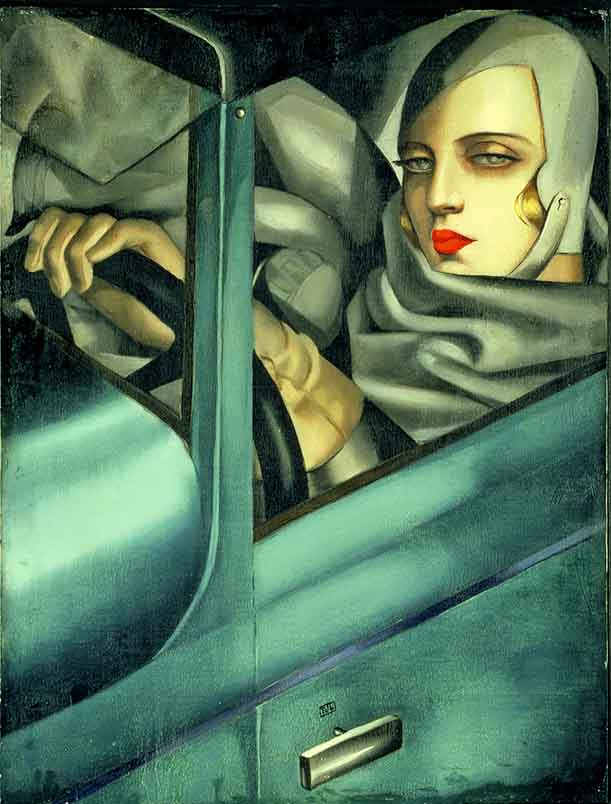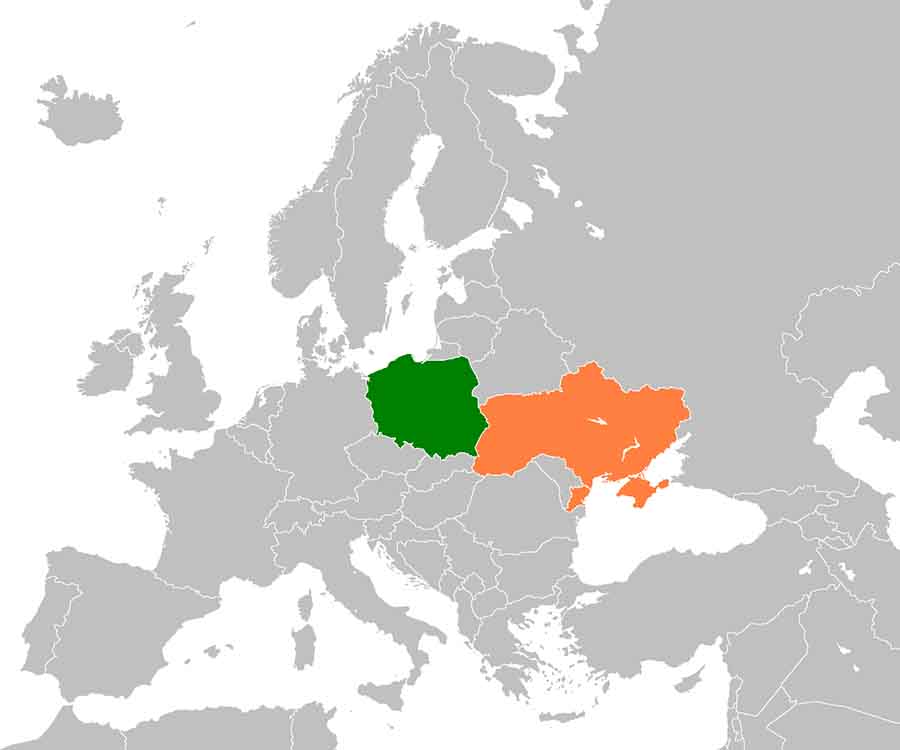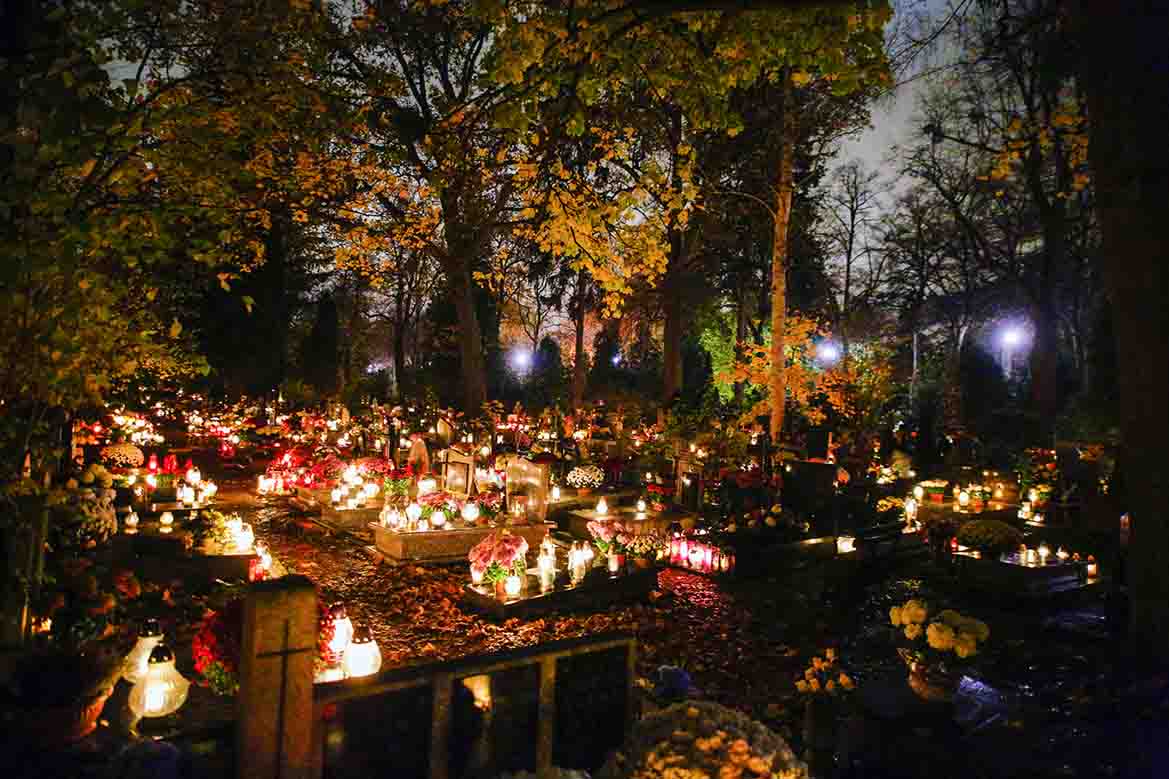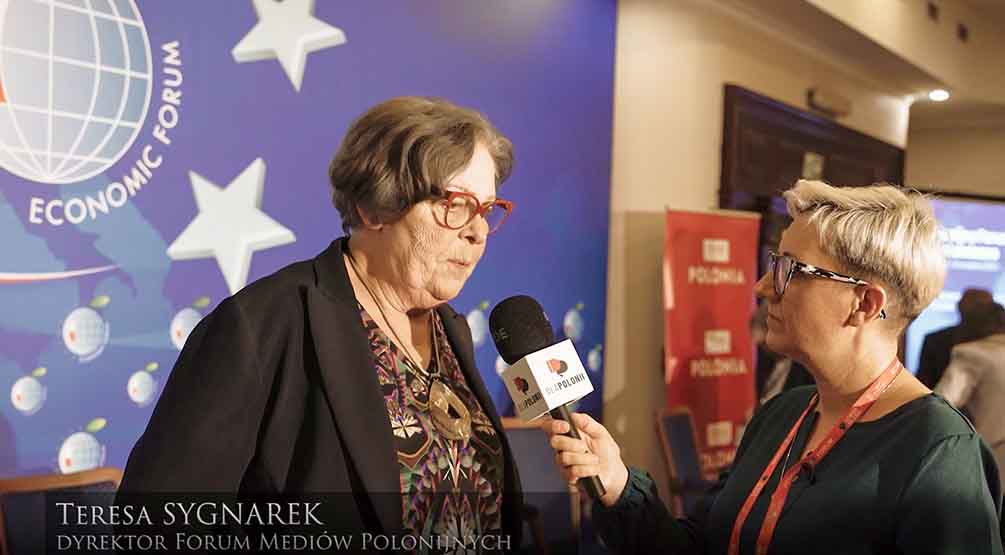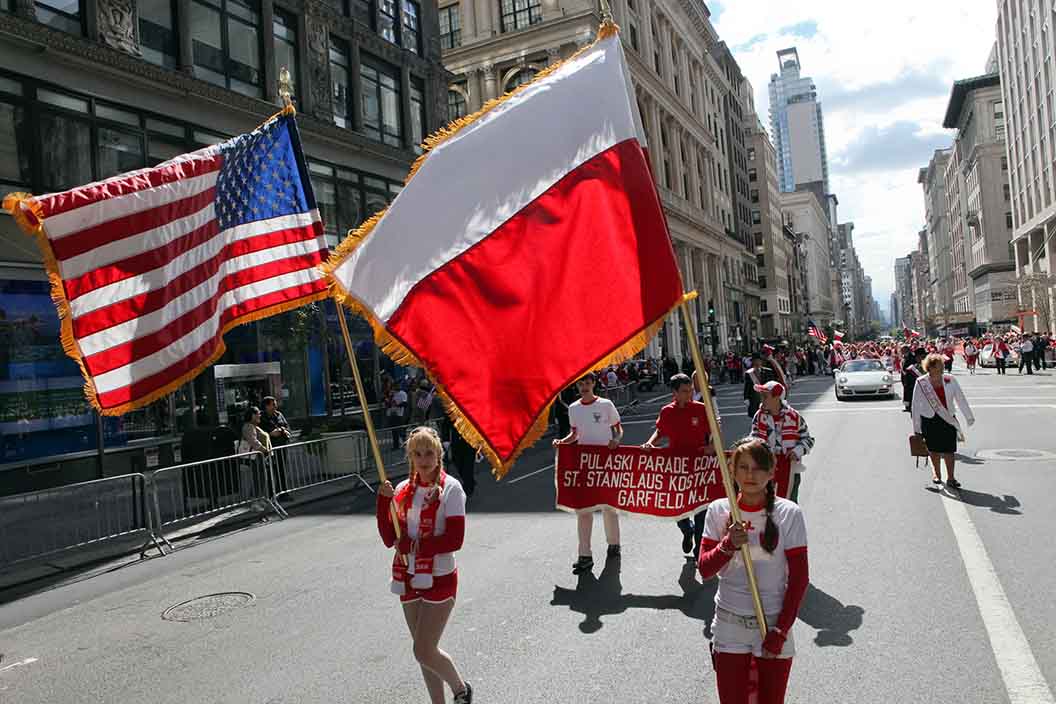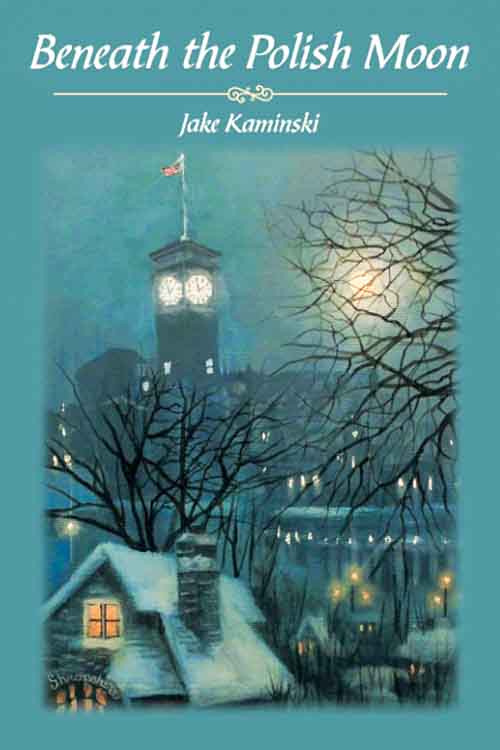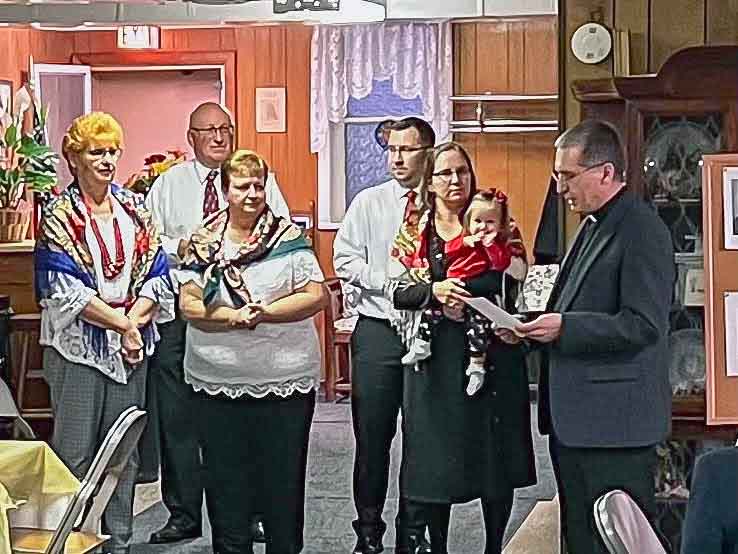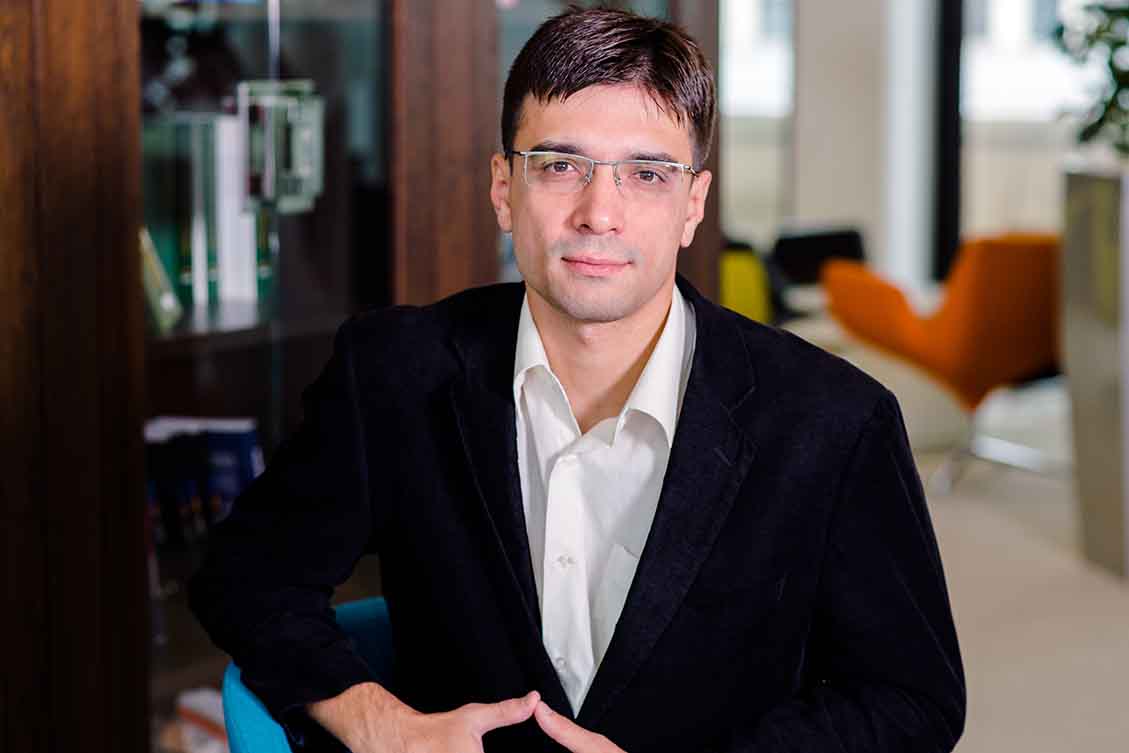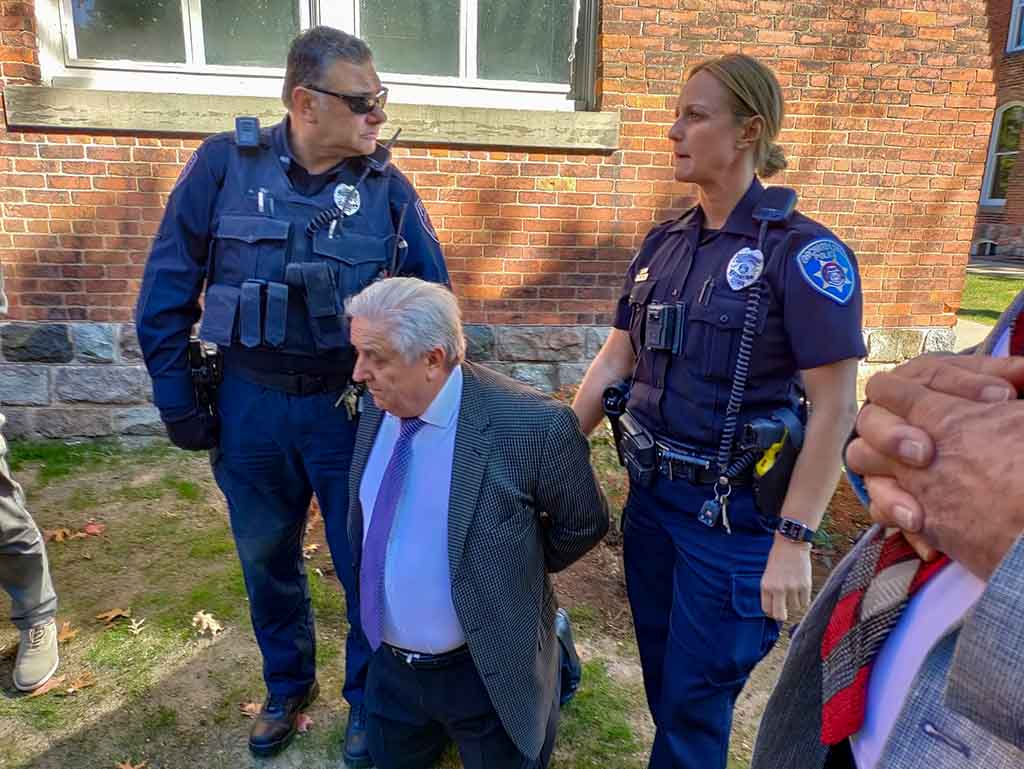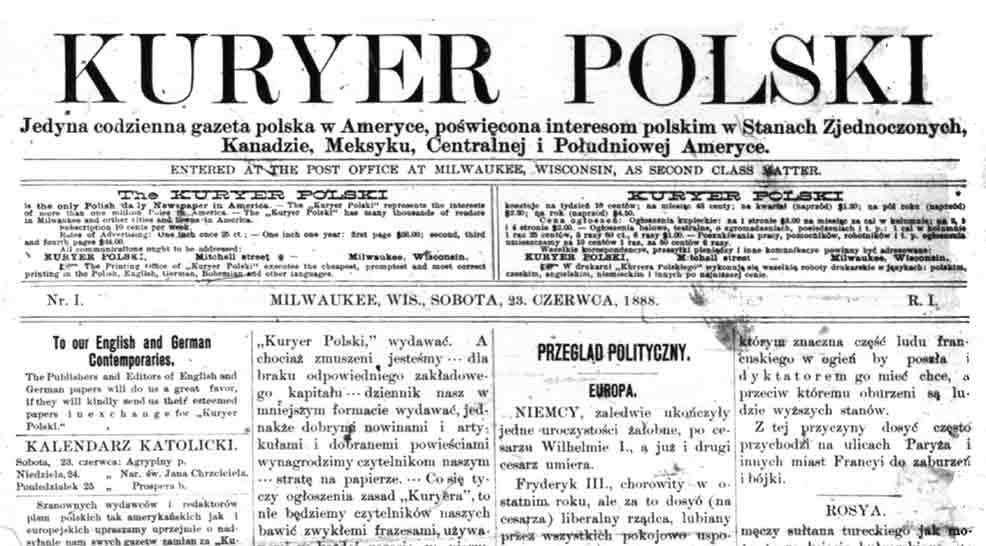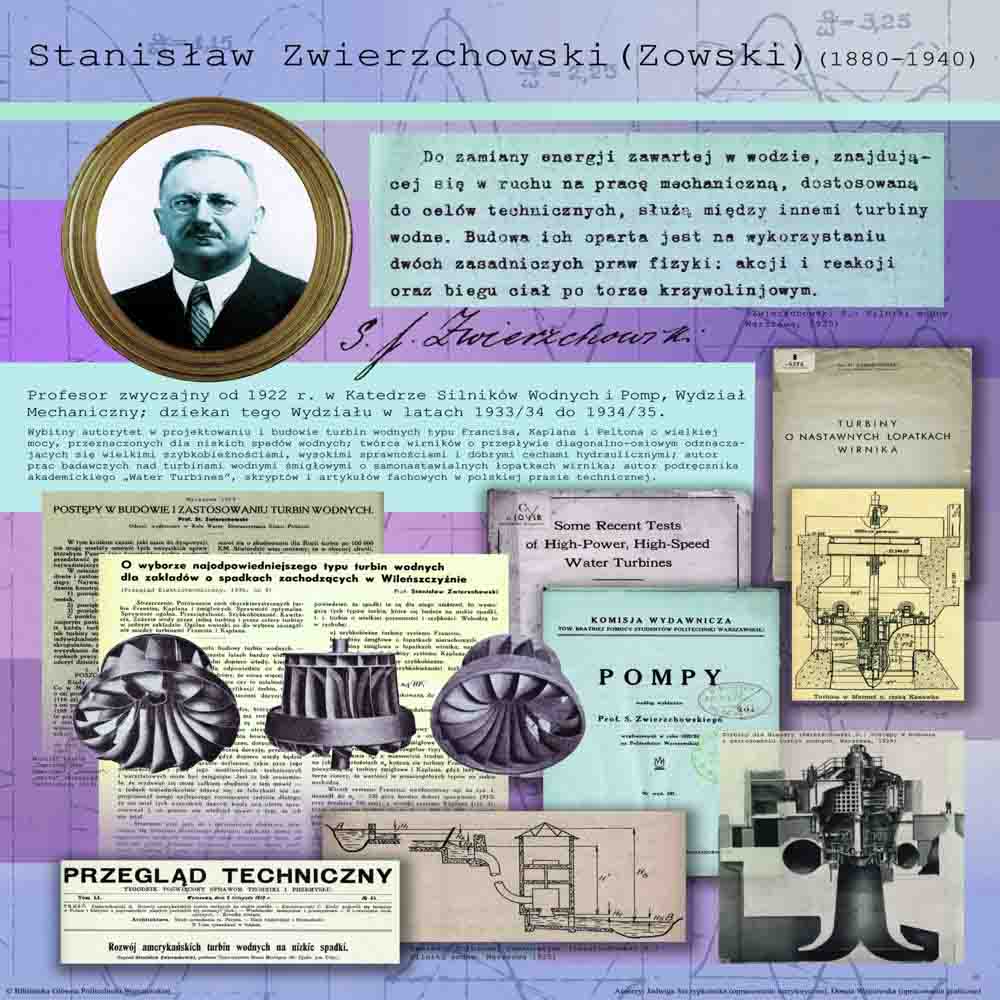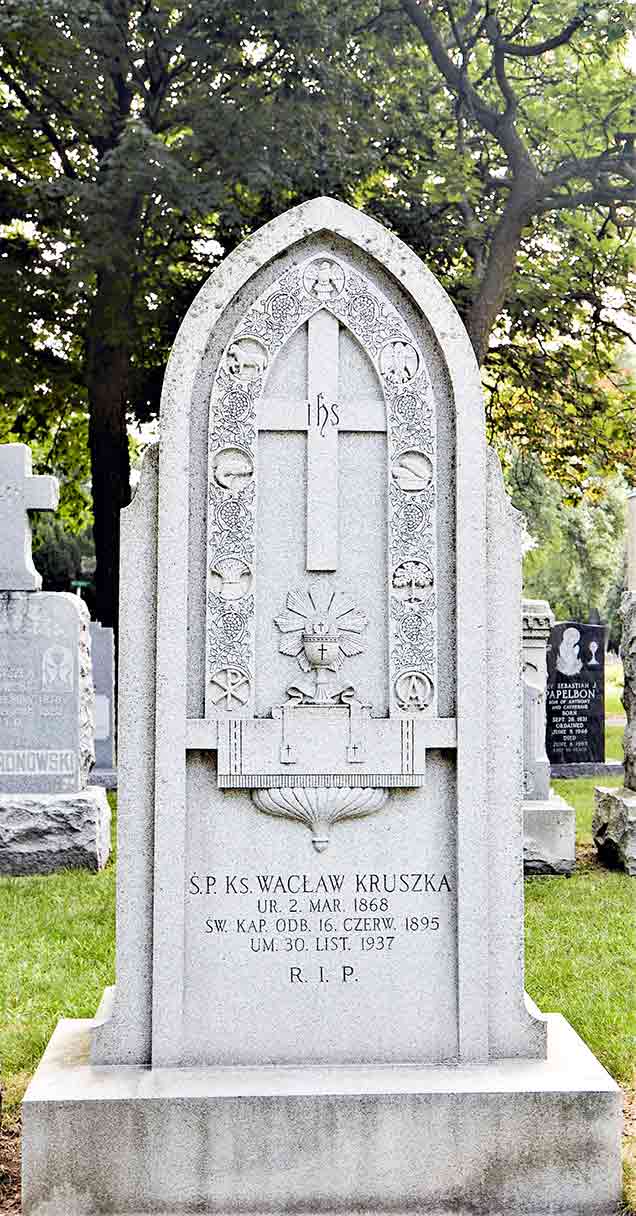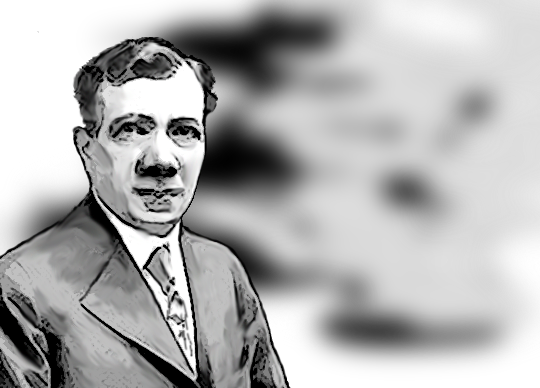There is no particular psychological portrait of a Pole helping Jews survive the Holocaust. Everyone helped. Humanity compelled them to do so. An example of such an attitude is the fact that Jan and Antonina Żabiński, who hid Jews in the zoo in Warsaw, were helping on one extreme, and Leopold Socha, a thief from Lviv, who was hiding a Jewish family in the sewers, on the other.
Read more...The first American ambassador to Poland after the war was Arthur Bliss Lane (June 16, 1894 – August 12, 1956). He came to ruined Warsaw in July 1945.
Read more...The battle — perhaps the largest and bloodiest in the history of medieval Europe — occurred on a field southeast of the Baltic seaport city of Gdansk (Danzig) and between two small villages: Grunwald (Grünfelde) and Stębark (Tannenberg).
Read more...Bringing to Poland the ashes of three Presidents-in-Exile of the Republic of Poland: Władysław Raczkiewicz, August Zaleski, and Stanisław Ostrowski, on the anniversary of Poland regaining independence, prompts a reflection and reverie. The question arises: Do Poles on the Vistula River realize what the contribution of Polish emigration to the process of regaining independence by Poland was?
Read more...Tamara Łempicka's paintings fetch exorbitant prices at art auctions. She is undoubtedly the most expensive and most recognizable Polish painter in the world. Owning one of her paintings has become fashionable among modern celebrities. They are collected by Madonna, Jack Nikolson and Barbara Streisand.
Read more... Reading time 7 min.ART BASEL MIAMI, started in 1970 by private gallery owners in the Swiss city of Basel, is a global art fair that connects artists, galleries, collectors and art lovers from all continents. Since 2002, traditionally at the turn of November and December, the fair has its edition in Miami, and since 2013 also in Hong Kong.
Read more...The tragedy in Przewodów and the death of two Polish citizens clearly showed the scale of problems in bilateral relations between Poland and Ukraine.
Read more...Who has Buried the Dead (Optimum Publishing International) is a richly detailed global thriller set in Second World War Poland. It brings the reality of the pain and suffering of Poles endured in the German/Russian invasions and occupation of that nation and tells the little-known historical tales of the Polish underground and Poles fighting on the Western front. It also discloses one of the last great secrets of the Second World War which, much like Enigma, has a very vital Polish component.
Read more...The threat of China’s political, military, and economic power continues to grow, rapidly moving toward existentially dangerous levels. In comparing the Gross Domestic Product (GDP) and the Purchasing Power Parity (PPP) between the United States and China, the increasing magnitude of the communist country’s threat is clear.
Read more...Actor, director, producer, screenwriter, writer and lecturer, Marek Probosz has once again achieved great success in New York. He performed there at the United Solo Theater Festival, where he played the main role in the play "Powrot Norwida" (Norwid's Return), which he directed.
Read more...The Polish diaspora and influential personalities from Poland are campaigning to prevent the liquidation of the only seminary for the Polish diaspora in the United States. If you agree with the letter to maintain the active status of the 137-year-old only seminar for the Polish diaspora, join us and sign this letter.
Read more...The Catholic observance of All Saints' Day, celebrated on November 1, is one of the most popular holidays in Poland, gathering millions of Poles in cemeteries every year to honour the memory of their deceased loved ones. This practice holds firm, despite the custom of celebrating the so-called Halloween, which is encroaching from the West.
Read more...The role of the Polish media is obviously very important. Thanks to the Polish media, we have the opportunity to reach all corners of the world. I can say that, as the World Association of Polish Media, we went a step further...
Read more...In order to guarantee Polish interests, the reform of the Polish army, political, military and economic cooperation, the idea of the Intermarium, and the strategic presence of the United States on NATO's eastern flank, it is necessary to pursue an active state policy, Polish diplomacy and a coordinated influence of the Polish ethnic group on every administration in Washington.
Read more...A bestselling author Jake Kaminski (this is his pen-name), a Milwaukee native and decorated undercover cop turned writer, will appear for a book signing and discussion of his latest novel Beneath the Polish Moon at the Polish Center of Wisconsin
Read more...Polish story, Polish performance, Polish success. The series 'Wielka woda' has delighted Netflix viewers around the world. Other indigenous productions on this platform are not far behind it. A high wave of Polish series is coming.
Read more...On October 15, in the southern district of Milwaukee, the Polish community and its American friends celebrated the Polish Heritage Month, which they combined with the national reading of excerpts from the masterpieces of Polish literature. The year 2022 is devoted to Polish Romanticism...
Read more...Paweł Zyzak (born 1984 in Żywiec) is — according to Wikipedia — a Polish historian, Americanist, government analyst, publicist, entrepreneur, author of, among others Lech Wałęsa's biography entitled "Lech Wałęsa - Idea and History" (2009), Consul General of the Republic of Poland in Chicago (from September 2022).
Read more...The performance, "The Return of Norwid" (Powrót Norwida), based on the texts of one of the greatest poets of the 19th century, Cyprian Kamil Norwid, who — for many Poles — became a symbol of the fate of an emigrant, will be presented on the stage of the New York Theater Row on Broadway as part of the international festival United Solo.
Read more...The image of an elderly man kneeling and handcuffed, while singing the Polish national anthem, accompanied by American policemen, during a patriotic ceremony, in the presence of the Consul General of the Republic of Poland, a local bishop and other VIPs, went out into the world. Despite many scandals having already surfaced around Orchard Lake over the years, yet another has been triggered.
Read more...The German Nazi plan to kidnap and Germanize children, recognized by the pseudo-scientific assumptions of German eugenics as "racially valuable", was practically institutionalized in the territories of Poland, the USSR, the Czech Republic, and other countries occupied by the Third Reich during World War II. Historians estimate, however, that this process took the greatest intensity in occupied Poland.
Read more...Support Us!
We are a group of independently-minded Polish-American patriots. Support our efforts to inform, integrate, and unite Polonia and Poland, to promote and defend the good name of Polonia and Poland, and to connect Polonia and Poland into a web of empowerment across the world!Write for Us!

Submit your article proposal. We are always looking for new material!
Waldemar Biniecki
The original Kuryer Polski was the first Polish daily newspaper printed in the United States. Its founder was Michał Kruszka who published the newspaper in June 1888 in Milwaukee, Wisconsin.
Read more...Stanisław Zwierzchowski was born on April 27, 1880 in Śrem in Wielkopolska (Greater Poland), under the Prussian partition. He graduated from gymnasium in his hometown and technical studies in Berlin-Charlottenburg. In 1905. with a mechanical engineering degree, he came to Poznań and did an internship at the Hipolit Cegielski Factory. Following the footsteps of his countrymen, he went to the United States for further studies and quickly found a job as a structural engineer at the Allis Chalmers Co plant in Milwaukee.
Read more...Kuryer Polski was born in hardship and uncertainty, after all, its creator - Michał Kruszka, had already had two unsuccessful publishing attempts behind him. At the beginning of Kuryer's way, Michał was a truly Renaissance figure - the creator and executor of his idea. Soon he was supported in the implementation of his project by two brothers who came from Słabomierz - Józef and Wacław.
Read more...Part I - Michał Kruszka
Katarzyna Murawska
Historical documents confirm that the Polish people have always been associated with America. The list of great Poles who made an impact throughout the history of the United States is long. It begins with the semi-legendary “John of Kolno” who supposedly came to this continent 16 years before Columbus.
Read more...


